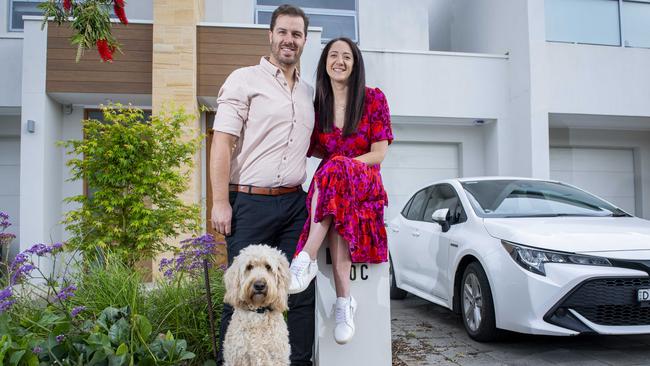Cash deposits: when to hold them, where and why
Knowing when – and where – to hold cash can potentially save households and investors thousands of dollars.
Holding cash in the bank is a foreign concept for many people in today’s world of digital money, big mortgages and rising consumer debts.
Cash provides a valuable emergency buffer, but some people are better off diverting dollars elsewhere to save interest, earn higher income or grow their investments.
Knowing when to hold cash, where, and how much, are important money-management skills.
People’s Choice Credit Union spokesman Stuart Symons says while everyone’s situation is different, unplanned expenses do arise.
“I think there is a clear advantage to having immediate access to some of your money and not having it all locked away,” he says.
“Emergencies do happen.”
Here is a guide to holding cash, based on your life stage or financial situation.
YOUNG, SINGLE AND DEBT-FREE
Cash in the bank is your friend, for its flexibility. Westpac data shows a typical customer aged between 18 and 34 has almost $3000 sitting in term deposits, transaction and savings accounts.
Young people can consider investing in shares and other growth-focused assets. Finance specialists recommend holding between 10 and 30 per cent of your wealth in cash.

SAVING FOR SOMETHING
New research by Finder.com.au has found that three in five Australians have a regular savings habit, and people put away an average $743 monthly.
If you have a savings goal such as a home, car or holiday, cash is king because it won’t lose value like most investments can. If the money will be needed within three-to-five years, put it in the bank for certainty rather than potentially face short-term investment weakness.
Candi Hindocha and Andrew Jones are saving for and looking for their first home, so it cash savings make sense.
“We don’t want to invest it, where there’s a risk of suffering a loss, because that could be the difference between getting our home sooner rather than later,” she says.
Jones says the couple keeps cash mainly in a savings account and “minimal amounts in the transaction account”.
CARRYING CONSUMER DEBT
Credit cards can have interest rates near 20 per cent, so holding money in cash earning 2-4 per cent when you are not repaying the card debt within its interest-free period is costing you money.
Symons says you should not be paying interest on your credit card if you don’t have to.
“However, it comes down to personal circumstances,” he says.
“People might want to keep the cash if it’s a sensible buffer against emergencies. If it’s any more than that, then using it to avoid interest payments makes sense.”
REPAYING MORTGAGES
The one-third of Australians who are paying off home loans often have options where their cash shouldn’t be sitting in savings.
“If you have a home loan then an offset account or redraw facility can make sense because your money’s accessible but still working for you,” Symons says.
Finder.com.au head of consumer research Graham Cooke says keep cash in a place that benefits you most.
“An offset account, for example, reduces the interest you pay on your mortgage,” he says.
“If your mortgage interest rate is 5 per cent, then any cash you don’t keep in the offset is costing you 5 per cent annually.”
OLDER AUSTRALIANS
Cash gains importance for those nearing and in retirement. Financial planners often recommend holding a cash buffer of two or three years of income needs, then investing the rest in a diverse portfolio of assets.
Westpac’s data shows customers age 65-74 have an average $46,067 in cash accounts, while the median for this age group is $4951.
Where you hold the cash is important too. “The average rate of interest awarded in a transaction account is 0 per cent – so only keep funds in there that you use for everyday spending,” Cooke says.
“Look for the best rate you can get – and make sure it’s an ongoing rate that doesn’t disappear after three or four months.”






To join the conversation, please log in. Don't have an account? Register
Join the conversation, you are commenting as Logout